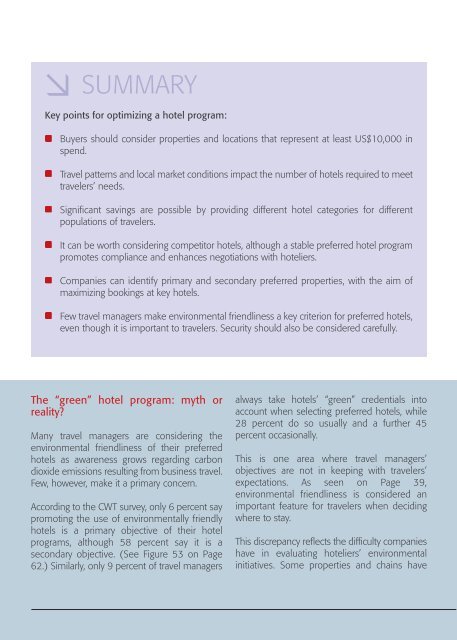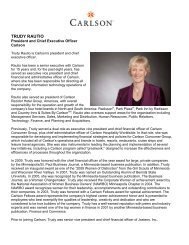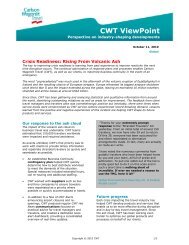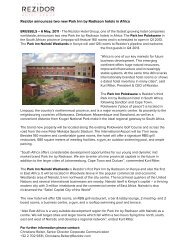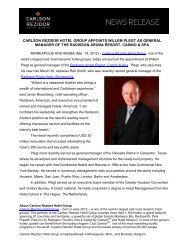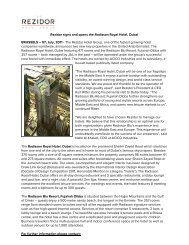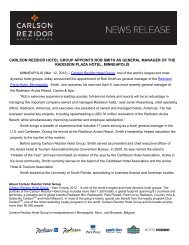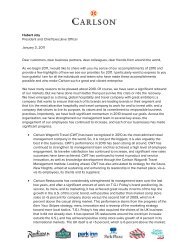Room for Savings: Optimizing Hotel Spend - Carlson
Room for Savings: Optimizing Hotel Spend - Carlson
Room for Savings: Optimizing Hotel Spend - Carlson
You also want an ePaper? Increase the reach of your titles
YUMPU automatically turns print PDFs into web optimized ePapers that Google loves.
SUMMARY<br />
Key points <strong>for</strong> optimizing a hotel program:<br />
Buyers should consider properties and locations that represent at least US$10,000 in<br />
spend.<br />
Travel patterns and local market conditions impact the number of hotels required to meet<br />
travelers’ needs.<br />
Significant savings are possible by providing different hotel categories <strong>for</strong> different<br />
populations of travelers.<br />
It can be worth considering competitor hotels, although a stable preferred hotel program<br />
promotes compliance and enhances negotiations with hoteliers.<br />
Companies can identify primary and secondary preferred properties, with the aim of<br />
maximizing bookings at key hotels.<br />
Few travel managers make environmental friendliness a key criterion <strong>for</strong> preferred hotels,<br />
even though it is important to travelers. Security should also be considered carefully.<br />
The “green” hotel program: myth or<br />
reality?<br />
Many travel managers are considering the<br />
environmental friendliness of their preferred<br />
hotels as awareness grows regarding carbon<br />
dioxide emissions resulting from business travel.<br />
Few, however, make it a primary concern.<br />
According to the CWT survey, only 6 percent say<br />
promoting the use of environmentally friendly<br />
hotels is a primary objective of their hotel<br />
programs, although 58 percent say it is a<br />
secondary objective. (See Figure 53 on Page<br />
62.) Similarly, only 9 percent of travel managers<br />
always take hotels’ “green” credentials into<br />
account when selecting preferred hotels, while<br />
28 percent do so usually and a further 45<br />
percent occasionally.<br />
This is one area where travel managers’<br />
objectives are not in keeping with travelers’<br />
expectations. As seen on Page 39,<br />
environmental friendliness is considered an<br />
important feature <strong>for</strong> travelers when deciding<br />
where to stay.<br />
This discrepancy reflects the difficulty companies<br />
have in evaluating hoteliers’ environmental<br />
initiatives. Some properties and chains have


